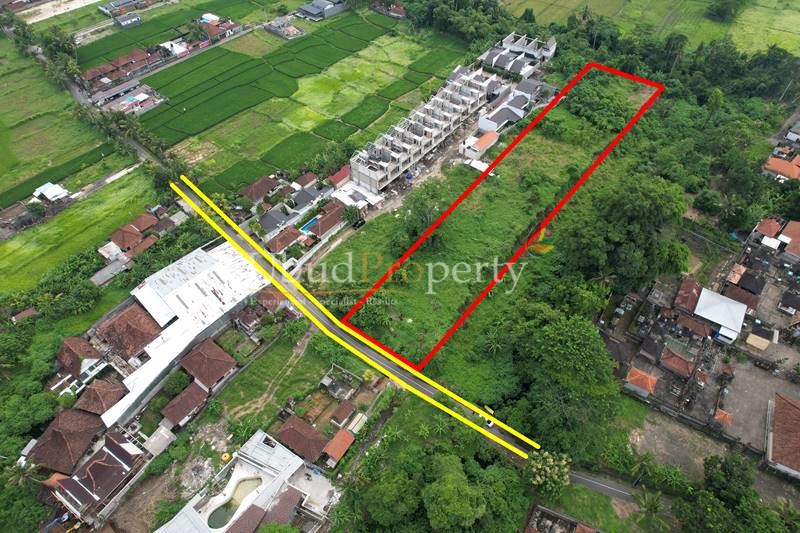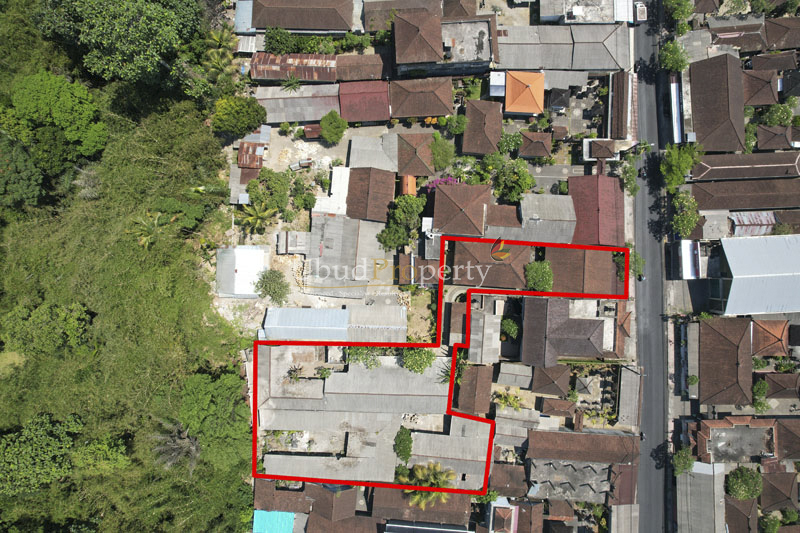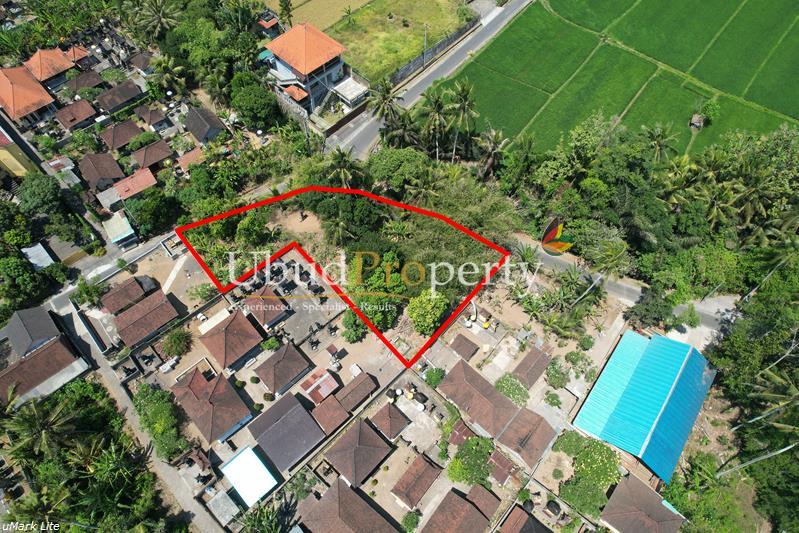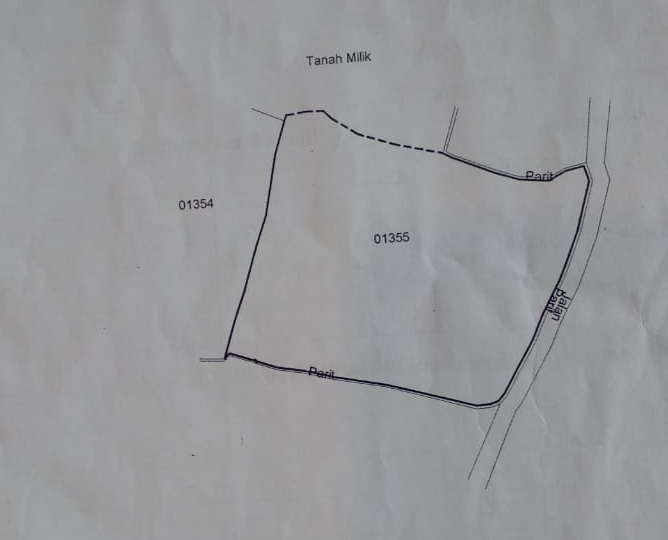Making Money In Paradise
13 Agustus 2020
Buying or leasing property to rent out.
The Ups and downs (if any).
(It is like sitting on one of those popular Bali swings)
First you go down (investing your funds), get the momentum and then it is mostly up and up again.
Well, talking about serious investment is not a matter to make fun of, such as a holiday trip to a coffee- and swing restaurant.
Let’s have a more serious look at what you can expect from buying a rental property, or the leasing rights to such. After all, you worked hard for those precious savings. Waste not want not.
You may remember, last month we already agreed that in August we look at what to expect from a rental property in Bali. Naturally, although the law on foreigner’s income earning, such as renting out for profit, are tough and complex, there are several thousand villas and homes held by foreigners, available for rent here, and all in all, the landlords make good money. We know, because we send those monthly net income cheques out to them.
I should not forget to say – if you intend to generate serious income from renting out, please have a tax advisor looking into your situation. They also can point out where you stand relating to your legal position. Living in Bali is just too good, to be messed up by entering a struggle with the authorities.
Well, to begin with and before you signed for the purchase on the dotted line, there are two main aspects to consider -
Other than with property investment just for monetary gain, which can be done anywhere else in the world, and if picked right, with even larger profit than through buying and renting in Bali, - there is this strong emotional factor, which is attracting the buyer to our island and in our particular situation – here to Ubud. This factor has a different value ranking for each one of us, but one thing is for sure – there is an immeasurable bonus attached to owning a home in Bali. I say owning, which is a precise legal term when I really should say ’holding or controlling’, which includes long-term lease and a variety of ownership and holding options.
Anyway, and back to the uniqueness of Bali; I like to compare the lure of a Bali life to the appeal most religions offer: Aiming for a place in heaven.
- You sure agree that it is clearly better to live it up here in Bali, than waiting for the time under, with all its uncertainty? If you manage to achieve a passive income from renting your villa in times when you do not live there, heaven even can provide earthly rewards to you.
Because the foreigner cannot buy with loaned money from an Indonesian bank, you have to purchase with cash on hand. It therefore follows that from day one you can enjoy cash flow returns through renting out. This differs to most other long-term investments where you have to wait, sometimes long, until money flows back.
The idea of buying a home or villa to rent out for profit is most alluring. However, just when you took the first steps towards owning such a villa, you will notice, there can be challenges which you maybe did not consider from the outset.
For example, the holiday rental market can fluctuate depending on location, supply and demand, and the economy. Sounds familiar, right? If this rings a bell, these days the bell sounds "corona – corona".
You might as well check out first, if you are made for the modest challenge to deal with rental property. Having Government Bonds which are due in x years, in comparison certainly is easier on any one’s nerves.
Just financially speaking, in order for the rental property to be at any time really profitable, the return you reap should be greater than what you could earn in conservative investments, such as bonds and dividend-paying blue-chip stocks, because of the fluctuations and risks involved there.
Let alone Gold, Bitcoin, and speculative stock with a high degree of risk, such as a penny stock or an emerging market stock. These are on a different risk level again, because they are often used for keeping value away from the tax man, which can be risky, or they are overly speculative. Nice to play with, but not suitable for using as foundation for your future financial security, such as brick and mortar on a lovely place near Ubud.
Having used the bad word corona already, -just imagine, the word ’covid’ did not even exist before January this year. The influence of economic effects due to the measures taken to reduce infections, however, would also play havoc with most other investments. For the sake of creating a clear image of benefits and disadvantages when buying a rental property, we now disregard the covid-19 times, which will be sooner or later a horror story of the past anyway.
Buying to rent means just that. A minimum of 11 months per year renting your investment villa out, with the option of retaining some time for the own family’s usage.
I’m not advising a "fix and flip" strategy. You should plan on keeping your rental property for at least seven to ten years. As such, appreciation becomes one of the key benefits in your ROI. In fact, the International Association of Realtors has reported that real estate has averaged more than 6.74 percent appreciation annually during the past 50 years, and that is an international average. Here in Bali you will do better.
Typically, your villa should be repaid in 10 to 12 years of rentals, depending on your location and your ability to market the villa. Don’t believe agents or advertising boards that promise returns of 20%. An already good return in Bali these days is 8-10%.
This rate of return outperforms the S&P 500 and most Wall Street investments. I realize that not all property in every market will experience this type of growth, but this average is definitely something to consider. Don’t discount the power of property appreciation.
If you build in Bali, the price of construction should be between 500 to 1,000 USD per square meter, depending on the quality you are aiming for. Construction does not include the price of finishes and furniture, so add another 30-40% to the construction price to avoid any unexpected surprises! If you plan to rent out your villa, better budget for a villa manager and staff. Obviously do not cut corners when it comes to the renter’s comfort. This extra money will flow back to you.
In order to unload the burden of managing the villa, seeking tenants and checking that they follow their obligations under the contract, train the staff, organise repairs, deal with the local authorities and the village administration, follow up on late or unpaid rent, and a further number of related tasks to do, it is advisable to engage an experienced property management Company, such as UbudProperty. They will cover all the above and send you a net-income cheque every month, against a reasonable fee for service.
Firstly, check their track record on the internet. Praise/ Complaints?
The fees for service are fairly competitive and easy to find out. E.g. UbudProperty is charging for a standard villa about USD 210.- / month, which covers all there is to do.
The landlord can be assured, that the property is kept in best possible condition to attract renters and return bookings.
Income from Renters
The biggest benefit of owning a rental property is that the renters will provide you with a direct income stream. Those monthly rent checks go straight into your personal account, usually clearly more than offsetting any expenses for the month.
For example, if you own a house that you rent out for $2,000 per month, that house when fully occupied will put $24,000 per year back into your accounts.
It’s hard to argue with a direct income stream like that. It is worth noting though, that those kinds of figures are optimistic ones and you shouldn’t just dive in expecting those results. Still, even partial results will be very good. We experience as average an occupancy of 75% + for attractive properties, which still then would return USD 18.000,- p/a brut.
If renting out for profit, an average 10% tax on the rental income is due for a holder of a tax registration number. (NPWP)
Some pay nil, but run the risk, that the tax man compares the name in the Immigration Dept. file with a record of paid taxes under the same name, once they receive information about the rental practice.
In any case, the tax regulations are complex, and often even unclear to the Tax Departments own staff, as I found out. It pays to ask a reputable tax adviser about your personal setup,
because different taxation rules apply if you hold the property via your own PMA Company (Foreign Investment Company), or if the property is classified as homestay/ B&B, or Melati.
Should you own the property, maybe via a PMA Company, or even through an Indonesian nominee, you stand to gain from an increase in the property value over time due to changing demands in the area, even if the property doesn’t undergo any changes.
This is obviously going to be a variable thing, as it depends heavily on the area where your rental property stands. In some areas, the value may rise significantly over the course of a few years, while in other areas it may remain flat. Ideally, this value growth holds pace with inflation at a minimum. This year the inflation rate in Indonesia is about 4%. If you happen to be in an above average sought after area, you might find that you can easily beat inflation. Before ’Covid-19’, there were annual property price increases in Bali from 8 to 15%. As property values undergo a cyclic development, as sure as the sun goes up tomorrow, these value increases will come again. (At least this is the lesson from the past).
The other factor that you should consider is that your ’sweat equity’ is likely to add additional value to the property as you maintain and upgrade it. Doing things like repainting the home, adding a pool, refinishing the inside, doing some basic landscaping to the yard, and so on will add value to the home, some without significant financial cost.
Not only will this allow you to charge more for rent, it will also increase the value of the property itself should you choose to sell it in the future.
If you enjoy home improvement projects, this should be a major attraction for buying a rental property. You’ll have the opportunity to fix it up upon acquisition as well as in between tenants, which will return very nice dividends for you. The skilled daily worker, an electrician, carpenter, painter, etc. receives about $ 14.- per day, not hour, making it very worthwhile to upgrade and renovate.
OK, finally the villa is ready to rent out. You want to do this yourself?
Again, your villa management team is ideally set up to attract renters and do the contractual work, followed by taking care of the guest in every beneficial way, so that your property is in the good books of social media.
While there also have always been several well-known internet booking sites for holiday homes and villas, Airbnb’s platform, part of the so-called ’sharing economy’ has really made it possible for anyone to become an accommodation provider, whether you are renting out a wooden shack in the backyard or a 5-star villa.
So is it possible or even legal, for a foreigner to rent out accommodation in Bali on sites like Airbnb? Well, of course it is possible, but like with many things in Indonesia when it comes to running a business, it is not easy (at least for foreigners). This topic is not an easy one to answer and the information should only be used as a basic guide and I can only again
suggest getting legal help, before making any big decisions. The good news is that the government has never had a problem with Airbnb like in some countries.
At the very least you will need a commercial building permit (IMB), an accommodation provider license and the land must be zoned for tourism. In the case of a small operation, most people go with a Pondok Wisata license, which is an accommodation license for a property with up to 5 rooms. Anything larger than 5 rooms, will require you to get a Melati licence. The Pondok Wisata license can only be in the name of an Indonesian person.
The main legal route for foreigners looking to get in the accommodation business is to start a PMA company. With a PMA company, as a foreigner you can have up to 67% ownership of the business for non, one and two star hotels.
Some people advertising properties for rent on Airbnb use their housekeeper’s name and photo for their property’s profile. While this beats using your own details, there is still the chance of getting reported by a jealous neighbor. So bring the occasional small present over. They also do their offerings and sure understand the gesture. It seems a good habit.
If you are planning to sublet a just yearly rental, it is better to rent it out monthly than daily. This option is possible to arrange with IMB (Building Permit) Rumah Tinggal and there is no need to obtain a Pondok Wisata small business license.
Another option is to buy a leasehold villa which has a IMB Pondok Wisata or Rumah Kos. A leasehold agreement entitles the holder to the right to use the leased building for a fixed period of time under the title of Hak Pakai.
Does it start being confusing? When diving deeper into the issue the fog will clear.
No fog at all to deal with, if you come to us for further advice.
Naturally we at UbudProperty know all about the particular situation we will be talking about and can give you personalized advice. What else are we here for?
Looking forward to seeing you then.
With kind regards from the team of UbudProperty,
Yours Ray.
FEATURE LISTINGS
U.635

- 3,379 Sqm
Maybe among the last ones: Land for development of a villa complex near Ubud. More Detail
IDR 9.799.100.000

